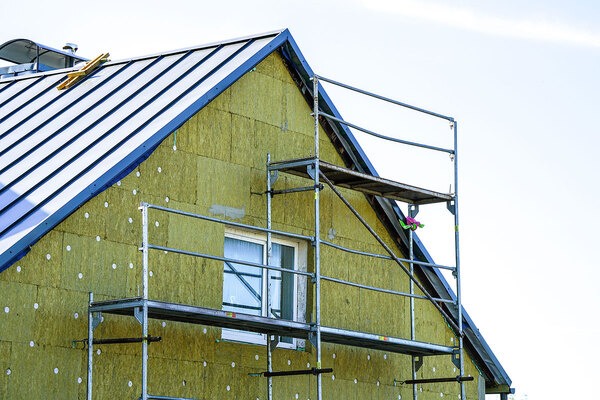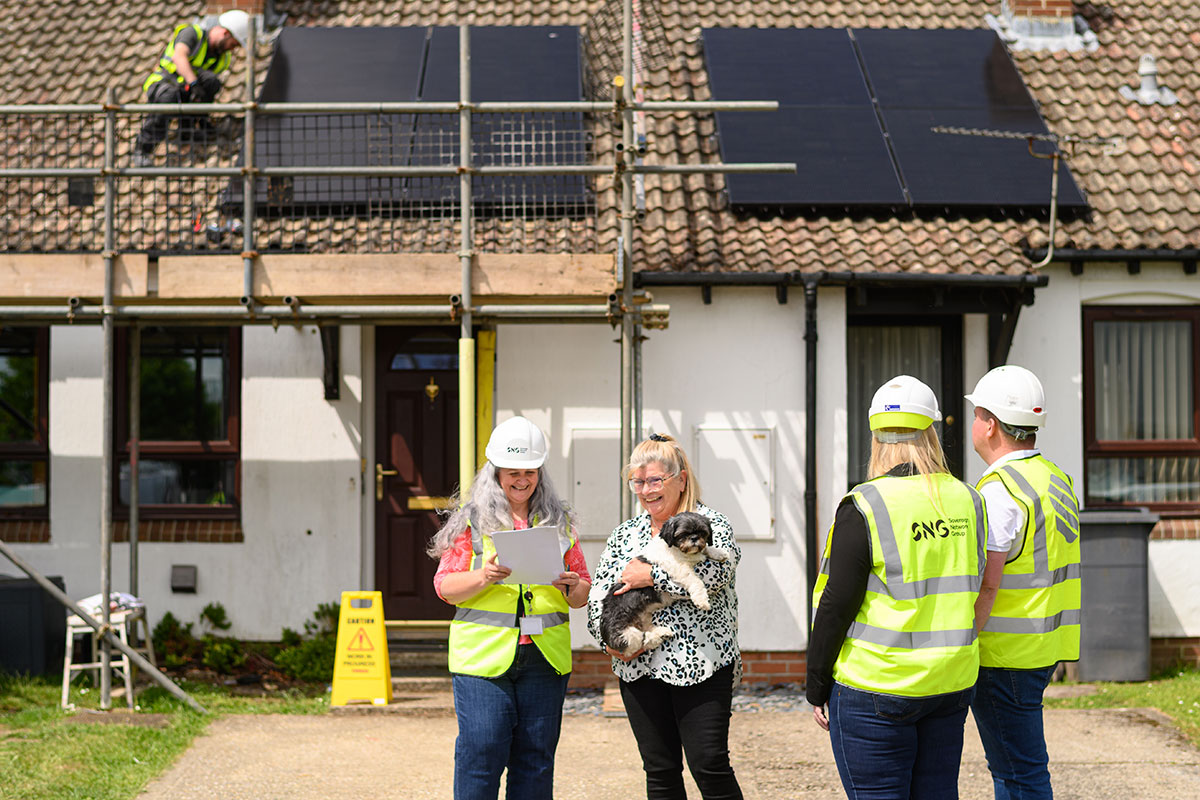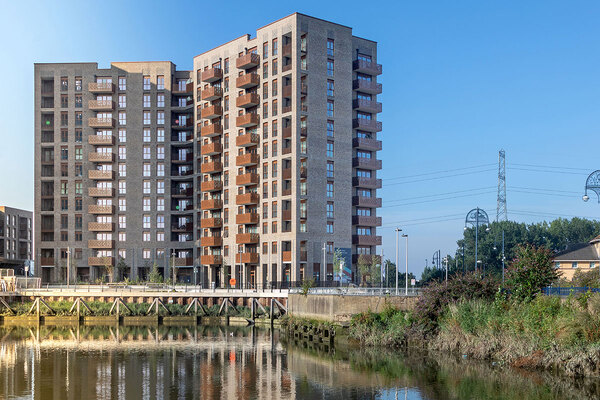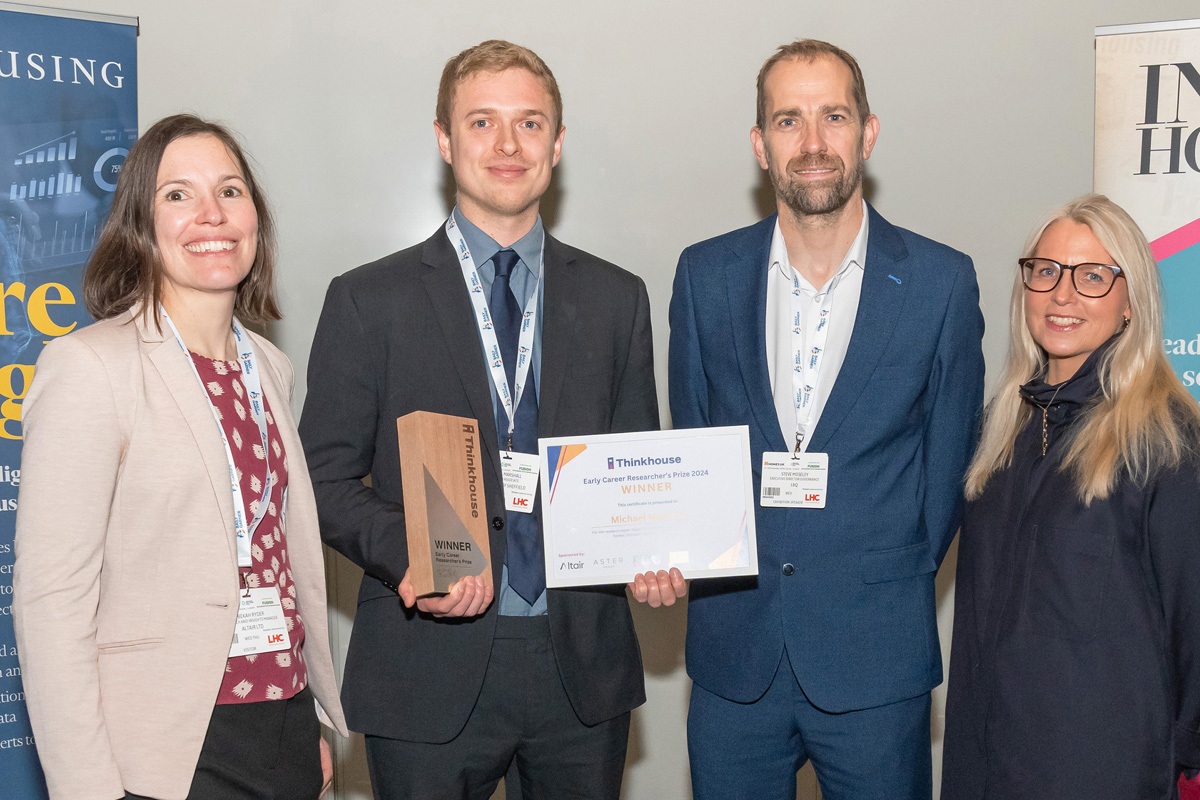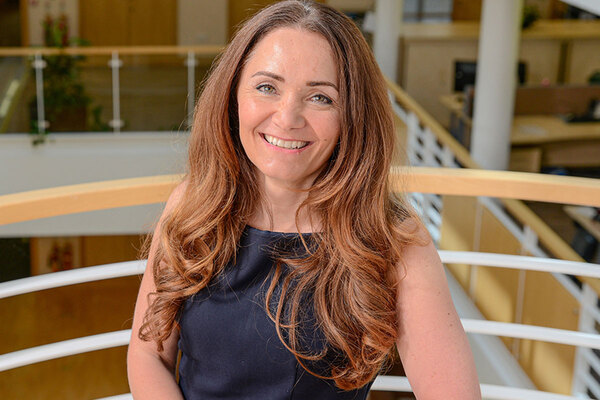You are viewing 1 of your 1 free articles
The largest commitment yet under the government’s decarbonisation funding
Olivia Woolnough and Jamie Leonard of Devonshires outline the headline proposals, eligibility and deadlines of Wave 3 of the Warm Homes Fund
The government has announced that it will commit up to £1.25bn of funding under Wave 3 of the Warm Homes Fund – formerly called the Social Housing Decarbonisation Fund – to social housing landlords, which is £150m more than the funding committed across the previous waves and initial demonstrator combined. It is estimated this will equate to the improvement of more than 140,000 households nationwide.
The Department for Energy Security and Net Zero (DESNZ) launched the fund in 2021 to fund the improvement of energy performance of social housing in England. Since then, the fund has awarded around £1bn in grants to councils and housing associations. DESNZ describes Wave 3 as having been designed based on the lessons learned throughout the lifecycle of the fund so far.
The third wave of funding aims to reduce the number of households in fuel poverty, improve the comfort and well-being of tenants, deliver cost-effective carbon savings, support the green economy and develop the retrofit sector.
However, important for applicants, it has a wide delivery window – this will allow social housing landlords to adequately assess their procurement options and plan their delivery programme.
There are two new routes to access funding depending on an applicant’s size: the challenge fund and the strategic partnerships route.
The majority of applicants will fall into the challenge fund, which is open to all who meet the minimum standards of the scheme. For a smaller number of applicants who can demonstrate a proven track record of successful delivery at scale, funding can be applied for via the strategic partnerships route.
Wave 3 sets the cost cap at £7,500 of grant funding per home. An additional £7,500 is available for low-carbon heating measures for homes that are not connected to the gas grid.
“As a reminder, grant recipients must improve their social homes to at least a minimum of EPC band C”
Up to 10% of homes in any one application are eligible for a grant fund of £20,000 per home, provided they are on the gas grid which is to be used to install low-carbon heating measures (eg heat pumps). There is no co-funding requirement.
Local authorities, combined authorities, registered providers of social housing and registered charities that own social housing can apply directly or as part of a consortium. ALMOs that are not registered providers can apply as part of a consortium led by an organisation that is eligible to lead an application.
All existing social housing (as defined under Section 68 of the Housing and Regeneration Act 2008) owned by applicants that are rated below Energy Performance Certificate (EPC) Band C are eligible. As a reminder, grant recipients must improve their social homes to at least a minimum of EPC band C.
Additionally, homes both on and off the gas grid are eligible for funding. There is no income-related eligibility requirement for social housing tenants (though applicants should consider this in the context of reducing fuel poverty – one of the wave’s key aims). It is possible for non-social homes and those above EPC Band C to be included in applications, however this is subject to a set of strict requirements.
The delivery window for Wave 3 runs from the signing of the legal documentation to 30 September 2028. However, all grant funding for Wave 3 projects must have been transferred to and spent by the grant recipient by 31 March 2028. It is worth noting that co-funding can only be used in the final six months of delivery, and 40% of grant funding will need to be spent by applicants within the first year.
“With the delivery window for Wave 3 running well into 2028, momentum is clearly ongoing for large-scale investment to facilitate decarbonisation work”
With the delivery window for Wave 3 running well into 2028, momentum is clearly ongoing for large-scale investment to facilitate decarbonisation work. There is ample opportunity for registered providers to access and utilise this funding to transform homes for their residents.
However, applicants must be cautious of the deadline dates and the front-loading of grant-spend, particularly when planning a delivery programme which may, for example, need to cater for the lengthy building control approval process.
Wave 3 also coincides with introduction of the new procurement regulations, which present new challenges and opportunities for registered providers. With the implementation date for these regulations delayed until February 2025, now would be the ideal time for registered providers to seek advice on how to navigate the upcoming changes, while utilising Warm Homes funding.
Jamie Leonard, partner, and Olivia Woolnough, solicitor, Devonshires
Sign up for our asset management newsletter
Already have an account? Click here to manage your newsletters


